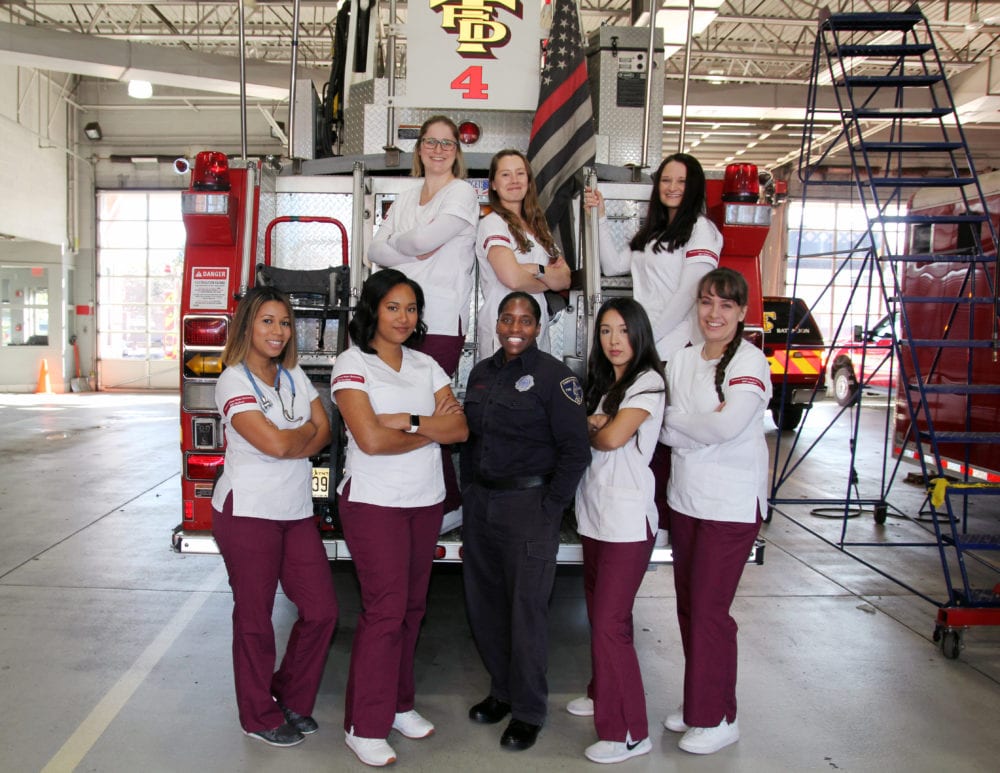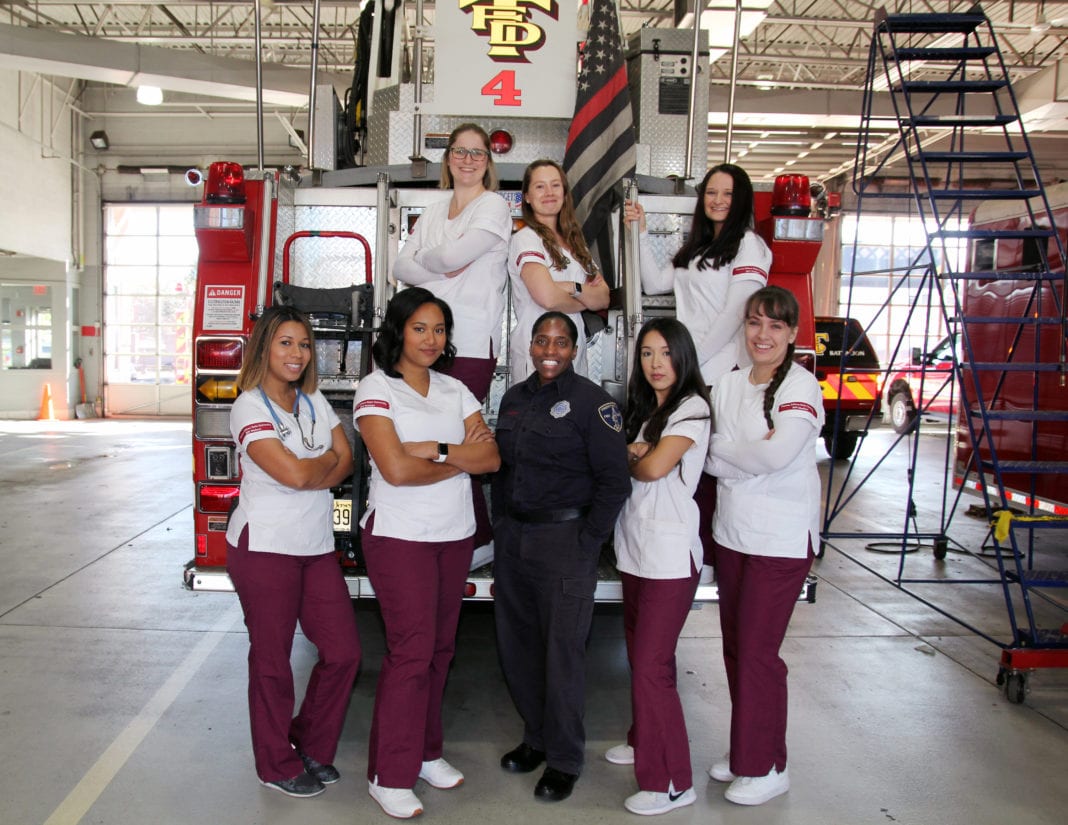Thomas Edison State University’s (TESU) Accelerated 2nd Degree BSN Program leverages real world experience to educate today’s healthcare professionals. As part of an ongoing effort to create effective alternatives to traditional learning, TESU’s W. Cary Edwards School of Nursing’s Ride-Along program combines the exhilaration of first hand experience with deep practical instruction.

“Students in the program gain unique, valuable, firsthand experience in emergency pre-hospital patient assessment and care,” says Dr. Filomela Marshall, dean of the school. “The synergies that will develop with fire fighters and emergency medical personnel on the front line is something they’ll take with them to multiple healthcare environments throughout their careers.”
Launched this year, the School’s Ride-Along program with the city expands on the nursing program’s condensed 12-month sequence of classroom-based courses, patient simulation lab exposure, online study and on ground clinical experiences in area hospitals, visiting nurse services and community-based organizations like the Trenton Area Soup Kitchen (TASK).
“The clinical rotations and public health experiences ensure that students develop an understanding of key health issues in the community and identify the challenges that face patients when they are discharged from the hospital,” said Marshall. “Hopefully, this experience will prepare our students to better plan for care along the continuum required to keep people healthy in the community and to decrease illness and readmission into hospitals.”
During a typical shift, students accompany fire department and EMS personnel on medical calls in the city of Trenton, where they may check patient vital signs and assess the home environment. According to Marshall, in shadowing personnel, the students learn about emergency assessments and developing a system for prioritizing patient care and gaining a better understanding of the decision-making process during an emergency situation. This collaboration also allows them to identify and address the community’s more persistent healthcare needs.
“Aspiring RNs in the program will gain a valuable understanding of the contribution emergency professionals make during the decisive timeframe in which patients are being evaluated, treated and transported to a medical facility,” said Derrick Sawyer, EFO, fire director for the City of Trenton, who oversees the fire company’s collaboration with nurse educators in the program. “They will also observe how first responders function in unique and often stress-inducing environments and what to expect during the crucial handoff between EMS and hospital personnel.”
“Cooperation between the City, and our valued educational institutions is what makes our community so strong” said Trenton’s Mayor Reed Gusciora. “Nurses get the training they need, and our Fire Department personnel get to hone their skills teaching the next wave of healthcare professionals in the Capital City. Everybody gets a win here.”
For more information on the Accelerated 2nd Degree BSN Program at the W. Cary Edwards School of Nursing, visit www.tesu.edu/bsna





